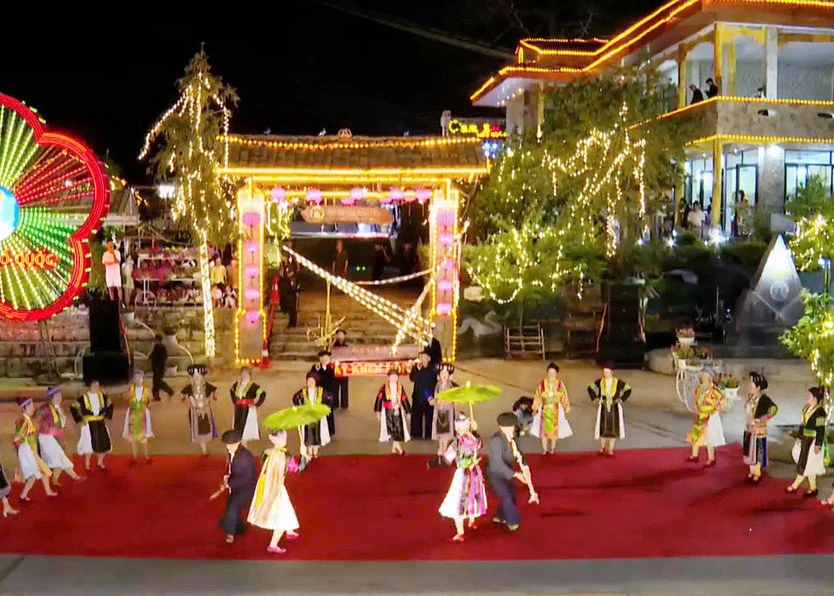Preserving indigenous culture
The UNESCO Global Geopark of Dong Van Karst Plateau is home to numerous ethnic minority groups, including the H’mong, Dao, and Lo Lo, each with rich and distinctive cultural traditions. Here, culture is not only preserved but revitalized, with local communities, true custodians of heritage, playing a central role in sustaining traditions while advancing community development.
 |
| Illustration. |
Tuyen Quang has revived and maintained a range of traditional festivals, crafts, and practices such as the Mong Khen Festival, Khau Vai Love Market, Gau Tao Festival, flax weaving, and rammed earth house architecture. Locals share stories, perform, participate in tourism, and live in harmony with their heritage. They serve as tour guides, improve their English skills, manage homestays, and operate tours. As a result, cultural traditions continue to flourish while creating livelihoods and boosting local incomes.
To retain its UNESCO Global Geopark status for the 2026–2030 period and beyond, it is vital to keep local people at the heart of cultural preservation. This requires shifting from “preserving for the people” to “empowering the people to preserve,” encouraging ethnic communities to tell their own stories through festivals, crafts, and daily life. At the same time, it is necessary to research and revive cultural values at risk of fading, while developing distinctive, community-based cultural tourism. Each village should have its own “story” and “cultural specialty” to draw visitors, supported by homestays that remain true to the original living spaces of the ethnic groups.
More than just a destination, the Dong Van Karst Plateau stands as a model for sustainable cultural preservation linked to community tourism. Breathing life into culture begins with igniting the spirit of the people, because culture lives not only in museums but in the rhythm of daily life.
Tuyen Quang continues to preserve and promote the values of the UNESCO Global Geopark by listening to its people, working alongside them, and enabling them to remain the keepers of tradition and storytellers of their homeland.
Bao Ngan





READER COMMENTS